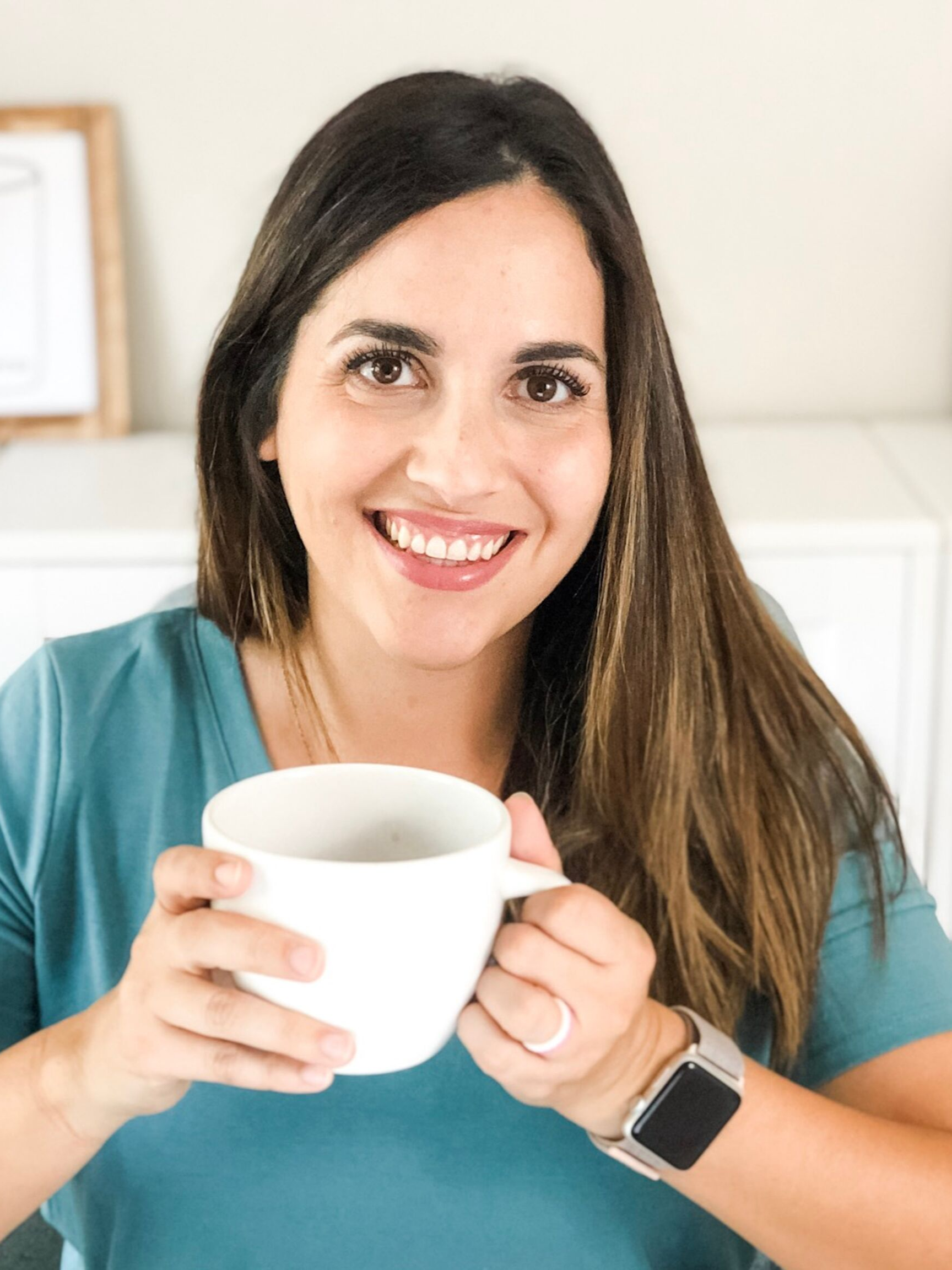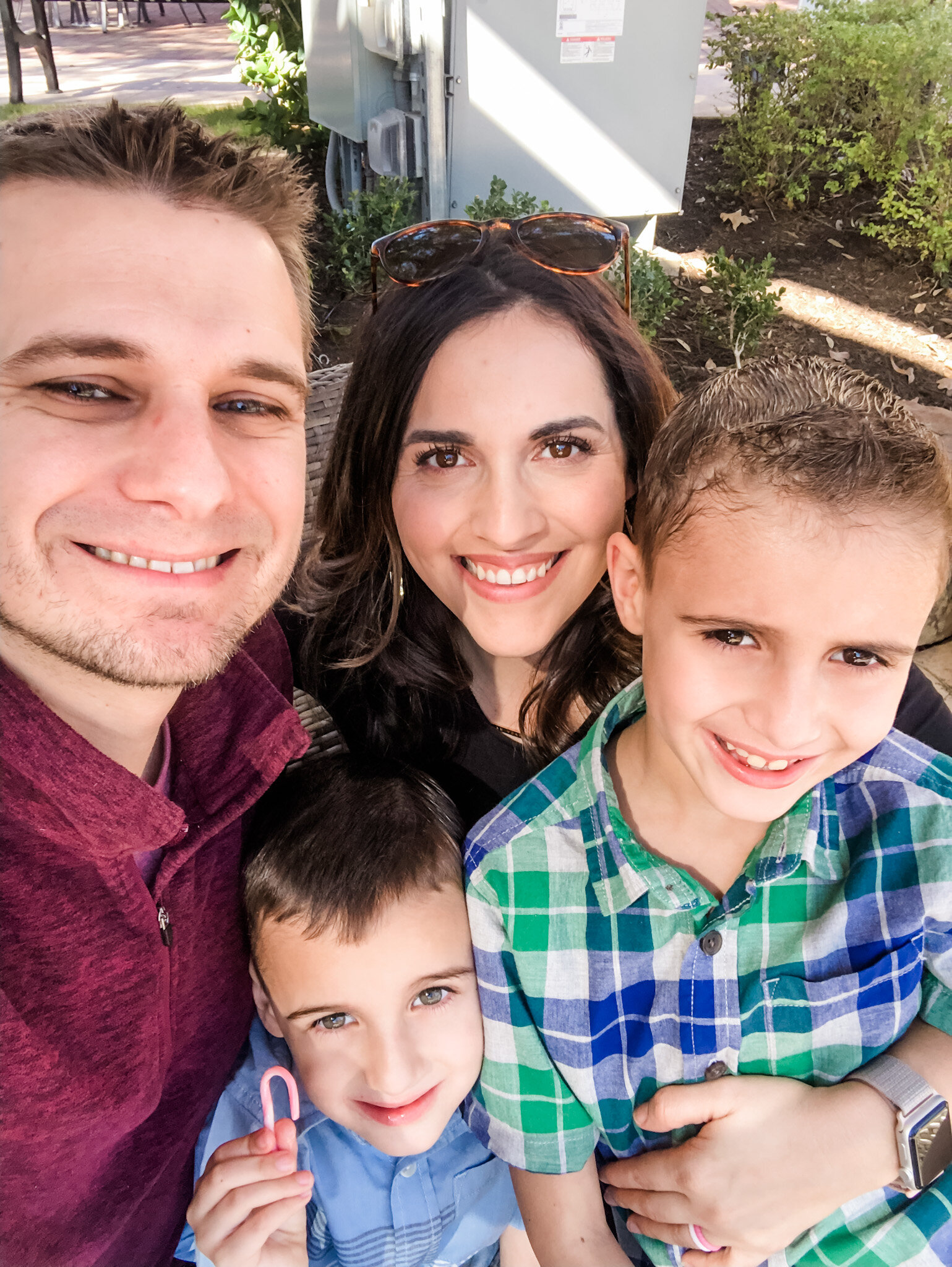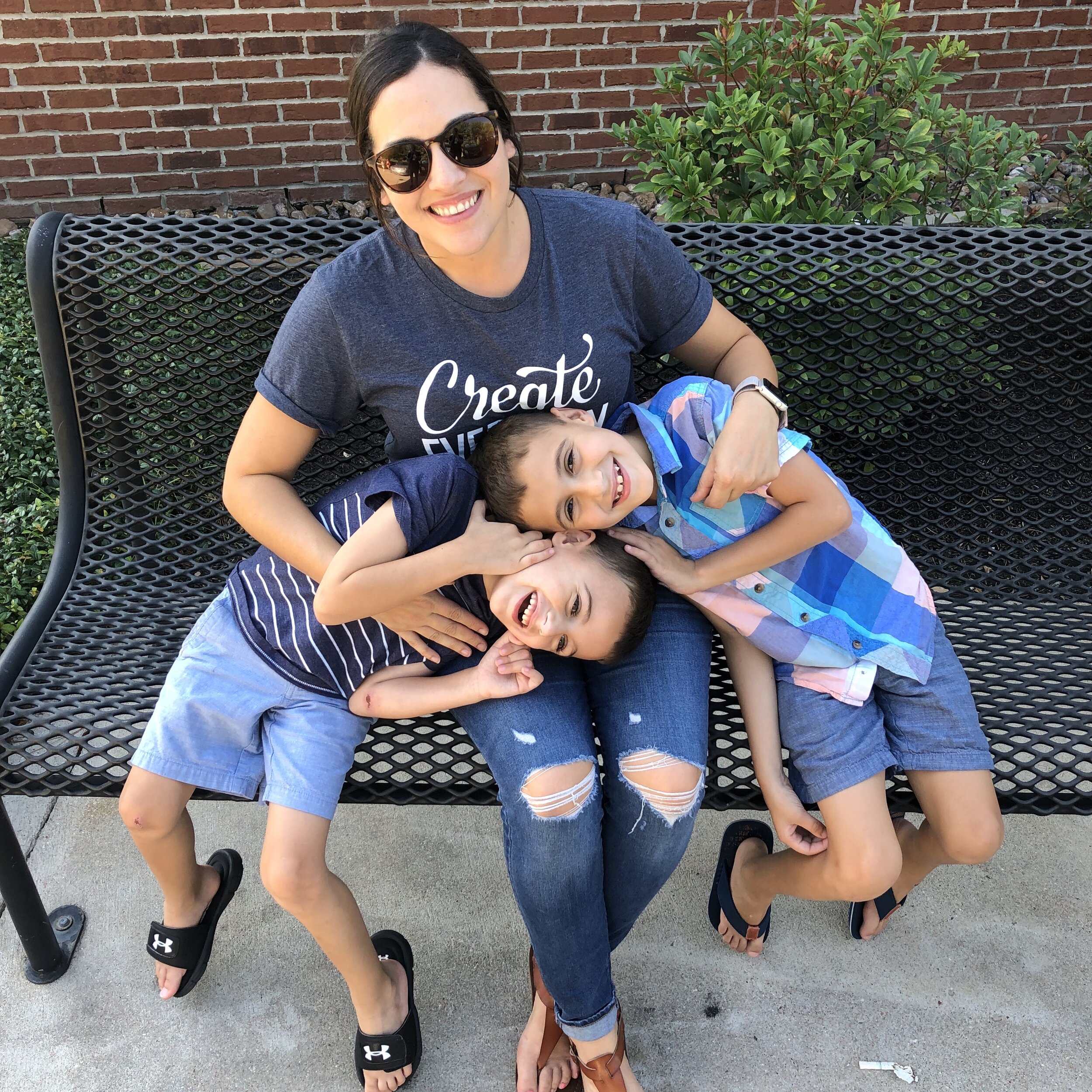Ashley Kaufman, who bought her NYC apartment at age 24 shares how she did it, plus her best money tips for financial grownups.
Money Tips
Be the planner of the friend group
Always be searching for discounts
Have a monthly self reflection session on your spending
Don't make yourself feel bad for spending money, but live within your means, do not spend more than you have
Always buy pet insurance!
Follow Name!
Instagram - @ashleykaufman and @walnutthemaltese
Follow Bobbi!
Instagram - @bobbirebell1
Twitter- @bobbirebell
LinkedIn- Bobbi Rebell
Website- http://www.bobbirebell.com
Did you enjoy the show? We would love your support!
Leave a review on Apple Podcasts or wherever you listen to podcasts. We love reading what our listeners think of the show!
Subscribe to the podcast, so you never miss an episode.
Share the podcast with your family, friends, and co-workers.
Tag me on Instagram @bobbirebell1 and you’ll automatically be entered to win books by our favorite guests and merch from our Grownup Gear shop.
Full Transcript:
Bobbi Rebell:
Hey, grownup friends, a big thank you to so many of you that have already bought my new book, Launching Financial Grownups: Live Your Richest Life by Helping Your (Almost) Adult Kids Become Everyday Money Smart. This book was not easy to write because I had to get honest with myself about what was working with my teen and young adult kids and what was not working. I also had to be prepared to share it with all of you.
Bobbi Rebell:
First of all, thank you for your support and your wonderful responses to it. There's definitely some things in there that you may not have been expecting to hear. By the way, I got a lot of help from my money expert friends and also financial therapists and parenting experts. I am really happy with how Launching Financial Grownups came out, even though it really was hard to be, like I said, that honest, and it was a lot of work. But I really love doing it and I'm really happy with how it came out.
Bobbi Rebell:
On that note, if you have not already, please pick up a copy of Launching Financial Grownups today. After you do, please share it on social media. Please leave a review on Amazon. Those reviews are super important because the algorithm picks up on them and that can make the book a lot more visible to more people. I truly appreciate it and I really also appreciate all of your support.
Ashley Kaufman:
When it came to moving into the apartment, I made a running list of here are all the things that I'm going to need to purchase, from a spatula to a couch. It came down to me creating the Excel spreadsheet with three different retailers and a column for more specialty items and comparing the prices. Maybe the items wouldn't be exactly the same at three different stores, but it would be close enough that I could decide between each of them and compare the prices because every cent counted.
Bobbi Rebell:
You're listening to Money Tips for Financial Grownups, with me, certified financial planner, Bobbi Rebell, author of Launching Financial Grownups, because you know what? Grownup life is really hard, but together we got this.
Bobbi Rebell:
The big question I am constantly asked about my book, Launching Financial Grownups is, did your stepdaughter really buy her apartment at age 24? Then, how did she do it? Then, how can we do it? Well, the truth is, she focused and she made some really tough choices. It was not all perfect to say the least. Ashley also truly embraced the financial grownup lifestyle. You're going to hear more about that soon.
Bobbi Rebell:
Ashley wrote the epilogue to the book, Launching Financial Grownups, but until now no one has heard directly from her about all the details. Ashley not only reveals in her interview exactly how she did it and what she might do differently, she also is going to share her top money tips, including some that I am adopting myself. Yeah, you can tell I'm pretty proud of her. Here is my 25-year-old stepdaughter, Ashley Kaufman.
Bobbi Rebell:
Ashley Kaufman, you are a financial grownup and I can't believe I'm saying that after I've known you since you were eight years old. Oh my gosh. Welcome.
Ashley Kaufman:
Thank you for having me. Can't believe it's taken this long to get on the podcast.
Bobbi Rebell:
Okay. First of all, let me just say that you're the first of your siblings to come on the podcast, and your father has come on for our Summer Watch Series, and he does want to return. But he never came on to give actual money advice, money tips like you are, so you are special, Ashley.
Ashley Kaufman:
Thank you. Thank you.
Bobbi Rebell:
We're going to get to your money tips, which by the way, a lot of people know you because you wrote the epilogue to Launching Financial Grownups. It's been a big hit. Everyone says that is the best part of the book. I get a lot of people asking me something that we talk about in the book, which is the fact that you bought an apartment at age 24. I want to give you a chance to talk about it.
Bobbi Rebell:
How did you do it in short, but also how has it been? Because the book was written really a year ago, more than a year ago at this point and a lot has happened.
Ashley Kaufman:
Yeah. I was able to do it in short, by saving a lot, living at home after college and saving every dollar that I made. Immediately after graduating from college, I picked up a summer job, even though I had a job starting in August where I work now. I picked up that job with the intention of continuing to save and aggressively saving so that I could buy an apartment and move out.
Ashley Kaufman:
Not that I didn't enjoy living at home and eating with Harry every night, but when you're 22 and moving home after college, you really want to move out and live your own life like all of your friends are. So it was definitely hard in that regard just because I saw my friends living their own lives, renting apartments all over the city and furnishing them and making it their own space. I felt a little claustrophobic, just kind of like, I don't have my own space. I'm living at home.
Ashley Kaufman:
But in the end it's been worth it. I absolutely adore where I live now. It took a little bit of adjustment after moving in also to just make it feel like home, and it's taken the majority of the year to get there.
Bobbi Rebell:
Before I get to asking you about how it is living in your own apartment, tell me about the choices that you had to make, because it sounds simple, "Well, I just saved a lot of money by living with my parents." But it's not really that simple. You did have to make some choices and you did miss out on some things or make adjustments to your plans many times.
Ashley Kaufman:
Yeah. I think COVID helped a lot and not being able to go out with friends. I did also miss out on some things my friends were doing, like going to music festivals, which in retrospect seems like it was a massive waste of money anyway, but seeing all my friends there and having a good time, it definitely felt like I was missing out on something.
Ashley Kaufman:
There were also times where my friends would be going out to brunch every week and I just wouldn't go along with them because every dollar ended up counting. I was really tight when I did put the down payment down on my apartment and then had to go buy furniture, so every dollar ended up adding up to allowing me to live where I am now.
Bobbi Rebell:
One thing that stuck with a lot of people in the epilogue in Launching Financial Grownups is you said something like, "I love Excel. I'm an Excel kind of girl." How did you use systems to help you save the money, track money, and then help you when you were moving into this apartment and setting up your own home?
Ashley Kaufman:
Yeah. I do love Excel. I took a course on Excel in college, and since then, just everything has been in Excel. I have my monthly budgeting in there, which I have since college. I have a list of my running expenses that are the same every month, as well as a list of things I would like to do that month. If it doesn't add up to have me saving what I would like to be saving every month, I will make cutbacks and adjust, but Excel really runs my life.
Ashley Kaufman:
I mean, I have tabs for vacations I want to go on, I have tabs for, here's an expense that comes up once a year, like renewing my pass to the zoo, which I really enjoy, but I have to budget for that. It helps me keep track of that. When it came to moving into the apartment, I made a running list of here are all the things that I'm going to need to purchase, from a spatula to a couch. It came down to me creating the Excel spreadsheet with three different retailers and a column for more specialty items and comparing the prices.
Ashley Kaufman:
Maybe the items wouldn't be exactly the same at three different stores, but it would be close enough that I could decide between each of them and compare the prices because every cent counted.
Bobbi Rebell:
Looking back, what advice would you give to other people that have short-term, but big goals? Not necessarily buying an apartment, because not everybody wants to do that. It's not the right choice for everybody. People might want to move around, have other priorities, but if they have a short-term goal, what's the best way to get there?
Ashley Kaufman:
To really take a step back and look at what you're spending and do I really need be doing this? I mentioned earlier that I have a zoo membership. Maybe every year, I don't need to renew that if I don't see myself going, and I have a financial goal that I need to hit, or let's say something like I've been looking into buying a new couch. There's small steps that you can take to get to where you need to go by just taking that step back and reviewing all of those choices.
Bobbi Rebell:
Just being accountable and doing a self-audit of where you are right now and what matters most to you for that season of your life.
Ashley Kaufman:
Yes.
Bobbi Rebell:
All right. That goes into our money tips that you brought with you that are new money tips, but I think makes so much sense for everybody, not just young people, but it's very relatable, certainly in the young adult phase of life that you're in and you're 25 years old right now. I can't believe it.
Ashley Kaufman:
I know.
Bobbi Rebell:
The first of five money tips that we're going to get into has to do with, I would call it the FOMO thing, like your peer group and what's going on there. What's your money tip there?
Ashley Kaufman:
My money tip for friend groups is to always be the planner in the friend group, by being the planner, you can be cognizant of other people's requirements while also staying within your own budget. If people want to go out at night to say a club or something, you don't have to go to the fanciest nightclub to go have a good time with your friends. Some people might want to in your friend group, but other people might not be able to afford it.
Ashley Kaufman:
You can really make sure that you are courteous towards others while also staying within your own budget and maybe the budgets of your friends, if you're aware of their needs and requirements financially as well.
Bobbi Rebell:
I love that because we tend to think just reflect on ourselves like, "Wow, this is a stretch for me financially." But we also may not realize that it may be a stretch for everybody, but nobody really wants to say anything. It's actually a really considerate thing of your friend group to bring up the cost and to be the planner and control those things. Your second money tip is something your dad has gotten so good at and I'm so proud of him, and it has to do with making a little extra effort when you're buying stuff.
Ashley Kaufman:
Yes. My second tip would be to always search for discounts, which goes back into being a planner. If you want something, wait for it to go on sale, wait to find a discount of some sort. If it's travel, be planning over a year in advance and make sure that you are tracking any sort of discount. Marriott hotels I know specifically you can cancel up to 24 hours in advance or up to 48 hours in some cases so it doesn't hurt to book something while you're searching for something else, or searching for a better deal.
Ashley Kaufman:
There are also corporate discounts to look at at larger companies. Discounts through loyalty programs. I'll occasionally get something in my inbox from Marriott due to my status. You get X, Y, and Z number of extra points for participating in this program we have going on, or memberships like Costco. Costco Travel actually has some great deals to be found.
Bobbi Rebell:
Okay. Your money tip number three has to do, I think, with the ultimate in wellness and self-care.
Ashley Kaufman:
My third money tip is to always have a monthly reflection session. Whether you think that you need it or you don't, you probably do. It's just sitting down with your monthly credit card statements and your bank statements, and just seeing where there could be changes. It doesn't necessarily need to be cutting things, but it could be you have a subscription service like Ipsy or Birchbox, but every time you walk into TJ Maxx or Petco, you're buying makeup or things for your dog.
Ashley Kaufman:
You could be canceling those subscriptions and spending it on items that you really want, rather than what's just showing up in a subscription box.
Bobbi Rebell:
That's really good advice. I'm going to give that some thought, because I have a makeup/skincare subscription box that comes four times a year, that I do love the surprise element of it, but the truth is that they're not necessarily things that I would buy. I'm going to take that one to heart, Ashley. All right. The next one has to do with really the emotional elements. It's an emotional money tip.
Ashley Kaufman:
My next tip would be to don't make yourself feel bad for spending money, but live within your means. Don't spend more than you have, but don't make yourself feel bad for going out for a $5 coffee with your friends. I'm very guilty of this.
Ashley Kaufman:
I will occasionally cancel plans because I feel like it's not within my budget and it makes you feel bad because number one, you're ruining relationships with friends, and number two, you're really are developing an unhealthy relationship with money, where you feel like you have to cut something else in order to make up for something that really isn't hurting you that much.
Ashley Kaufman:
If it's not within your means, go ahead, cancel the coffee date with your friends. But if it's really not going to stop you from paying your bills that month, it might be okay to spend a little extra.
Bobbi Rebell:
I would add that don't forget that at many coffee shops like Starbucks, even though you think the smallest one is a tall, there's actually a short, which is even cheaper. You can get a short, plain coffee and have your coffee plans and not spend as much money as you... You don't have to spend for the 7 or $8 fancy espresso drink.
Bobbi Rebell:
Number five is my favorite of all, because you are a new pet owner, which is something that you did wait to do until you could afford it. We had a lot of financial discussions as a family because you have a dependent, Ashley.
Ashley Kaufman:
Yeah. Yeah. We just brought home my little dog, Walnut. She's a Maltese puppy. She is my entire world, but my tip related to dogs would be to always buy pet insurance, cats, dogs, whatever you can insure, always insure your pets. It should never be a question of whether you can afford care for your animal. I built my $500 deductible into my emergency fund when I went and signed up for pet insurance.
Ashley Kaufman:
I know that if something happens with my dog, it's a $500 deductible that I've covered in my emergency fund and then my insurance will cover 90% of it. I don't have to worry about calling the vet for the smallest of things. My dog had an episode in the middle of the night a few weeks ago where she was shaking. It wasn't super concerning, but I didn't hesitate to call the vet and find out that it was probably normal because I knew that I could cover the cost.
Bobbi Rebell:
I remember when you were thinking about adopting a dog, that you really in advance researched all the costs, including medical costs. I think that was so important because it is a dependent and it is important to understand the full scope of what you could be in store for, because you love your puppy. You're never going to say no and it's important to know what you're in store for. I was so proud of you just in the run-up to getting Walnut.
Ashley Kaufman:
Thank you.
Bobbi Rebell:
On that note, final thoughts and where can people be in touch with you? I know Walnut, the Maltese, is a big star as well so people might want to follow her.
Ashley Kaufman:
You can follow me on Instagram @AshleyKaufman or Walnut @Walnutthemaltese. Walnut is much more interesting on Instagram than I am, I have to say.
Bobbi Rebell:
Well, you are the brains behind the Walnutthemaltese Instagram account, so you get credit for both accounts. Thank you so much. I'm so proud of you, Ashley.
Ashley Kaufman:
Thank you.
Bobbi Rebell:
By the way, Walnut is starting to get inquiries for brand deals. She is so unbelievably cute. Feel free to DM @Walnutthemaltese on Instagram. I loved how candid Ashley was about the importance of having a healthy relationship with money and prioritizing living your life. She's okay missing some music festivals that frankly, she probably just wasn't that into anyway, but she does kick herself for foregoing coffee plans with a friend because she's so committed to staying on budget. It's delicate.
Bobbi Rebell:
I've talked about my own issues letting go and letting myself spend money. The lines are blurry on this, but when it comes down to it, money is the means to do what you want, so do what you want. Apply that thinking and don't let an unhealthy relationship with money keep you from living your life. I would tell everyone to replay this episode, but the truth is, we have it all for you in the show notes. Just go to my website at bobbirebell.com for those. It also will give you a full transcript.
Bobbi Rebell:
You also can sign up for our newsletter there, where we send podcast previews and interesting news articles to you just twice a month. I haven't asked this in a while, but please take a minute and write a review of the podcast on Apple Podcasts or wherever you enjoy listening to us. Biggest thanks to all of you for supporting the show.
Bobbi Rebell:
Please, please help me get the word out. Tell a friend, share on social and just keep listening and being in touch on all the socials. Big thanks to Ashley Kaufman for helping us all be financial grownups.
Bobbi Rebell:
Money Tips for Financial Grownups is a production of BRK Media LLC, editing and production by Steve Stewart, guest coordination, content creation, social media support and show notes by Ashley Wall. You can find the podcast show notes, which include links to resources mentioned in the show as well as show transcripts, by going to my website, bobbirebell.com.
Bobbi Rebell:
You can also find an incredible library of hundreds of previous episodes to help you on your journey as a financial grownup. The podcast and tons of complementary resources associated with the podcast is brought to you for free, but I need to have your support in return. Here's how you can do that. First connect with me on social media @bobbirebell1 on Instagram and Bobbi Rebell on both Twitter and on Clubhouse where you can join my Money Tips for Grownups club.
Bobbi Rebell:
Second, share this podcast on social media and tag me so I can thank you. You can also leave a review on Apple Podcasts. Reading each one means the world to me, and you know what? It really motivates others to subscribe. You can also support our merch shop, grownupgear.com, by picking up fun gifts for your grownup friends and treating yourself as well.
Bobbi Rebell:
Most of all, help your friends on their journey to being financial grownups by encouraging them to subscribe to the podcast. Together, we got this. Thank you for your time and for the kind word so many of you send my way. See you next time and thank you for supporting Money Tips for Financial Grownups.








